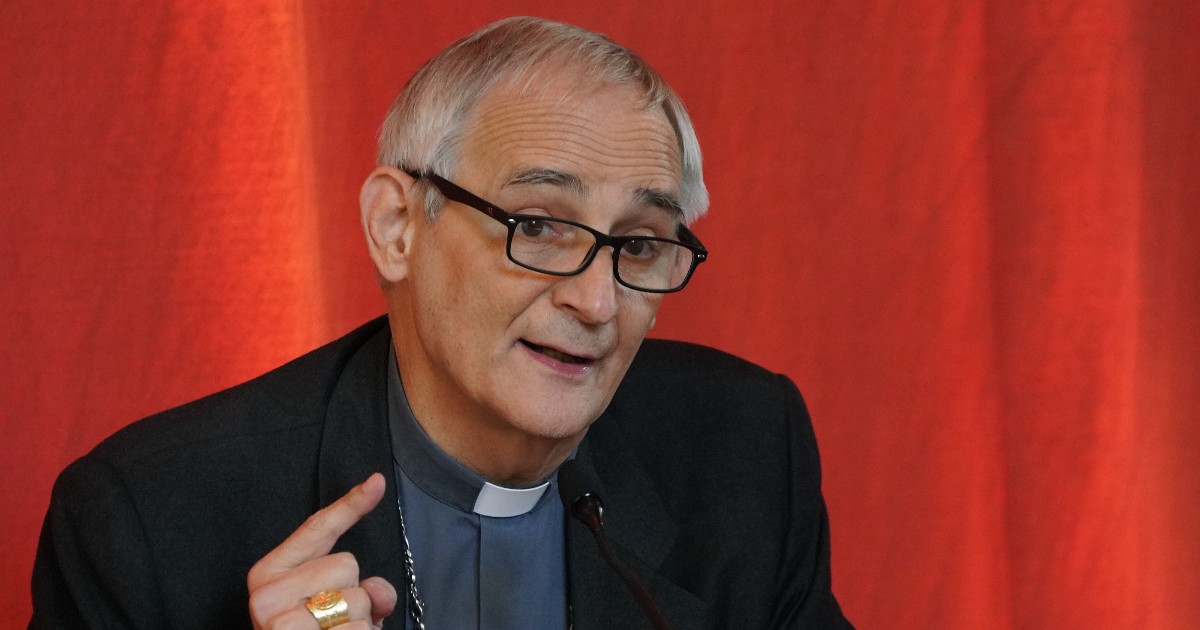Obligation to report bishops and report on abuse: what the new season of Zuppi provides for the fight against pedophilia in the Italian Church
Obligation to report bishops and report on abuse – From the lack of the obligation to report to the National report on abuse. It fell to the new president of the CEI, the cardinal archbishop of Bologna Matteo Maria Zuppi to inaugurate a new important season of the Italian Church in contrast to clergy pedophilia. An epochal turning point if you think about how, in a few years, what the cardinal defined as “the Italian street“.
Different from that implemented in France and Germany, but not for this reason dictated by the desire to continue to cover up the cases. The CEI branded Zuppi has decided to publish a first by November 18, 2022, National report on prevention activities and on reported or reported cases of abuse to the network of diocesan and inter-diocesan services in the last two years and to start an analysis of the data of presumed or ascertained crimes perpetrated by clerics in Italy during the period 2000-2021 guarded by the Congregation for the Doctrine of the Faith.
Precisely on the eve of the general assembly of the CEI, the Coordination against abuses in the Catholic Church – ItalyChurchToo he had asked for “an independent investigation, conducted by credible professionals and super parts, which sheds light on the abuses committed by the clergy in Italy, which sees the efforts of various and very high professionals united and which simultaneously uses qualitative, quantitative and documentary methods ”.
Exactly ten years ago, in 2012, when Benedict XVI was still Pope and the president of the CEI the cardinal Angelo Bagnascothe Italian Church approved the Guidelines on pedophilia. In that text, the prelates stated that “in the Italian legal system the bishop, not holding the title of public official or person in charge of public service, has no the legal obligation to report to the state judicial authority the news it has received regarding the illegal facts covered by these Guidelines “. A document that was rejected by the Congregation for the Doctrine of the Faith asked to modify it.
Two years later, in 2014, with Francis becoming Pope, the CEI limited itself to changing that passage by simply inserting an incident: “In the Italian system the bishop, not covering the public official status nor of a person in charge of public service, he has not the legal obligation – without prejudice to the moral duty to contribute to the common good – to report to the state judicial authority any information it has received regarding the unlawful facts covered by these Guidelines “.
The first real turning point came after five years, in 2019, with the cardinal Gualtiero Bassetti as president of the CEI, but especially after the world summit on pedophilia convened by Francis in the Vatican. The Italian Bishops Conference finally introduced the “moral obligation” To report to the civil authorities the cases of sexual abuse of minors committed by priests.
During the general assembly of the CEI, the cardinal Sean Patrick O’Malleypresident of the Pontifical Commission for the protection of minors sent a video message to the Italian bishops indicating seven points to be transformed into action to “start a constructive process of revision, of reform, and reconciliation ”on pedophilia. “It is a reality – explained the cardinal – that we will be judged based on our response to the abuse crisis in the Church. We need one pastoral conversion which includes the following aspects: offering effective pastoral care to victims;
Giving clear indications (and supervising) training courses for personnel in the diocese; doing one adequate and accurate screening; removing the culprits; cooperating with the civil authorities; carefully assessing the existing risks for I priests guilty of abuse (for themselves and for the community) once they have been reduced to the lay state; demonstrate that the protocols are in place so that people know that the policies work. An audit and a report on the implementation of the policies are very useful. The good news – concluded the cardinal – is that where effective policies are adopted and implemented effectively, the number of cases is drastically reduced ”. A road is shared also by Zuppi.
Twitter: @FrancescoGrana



